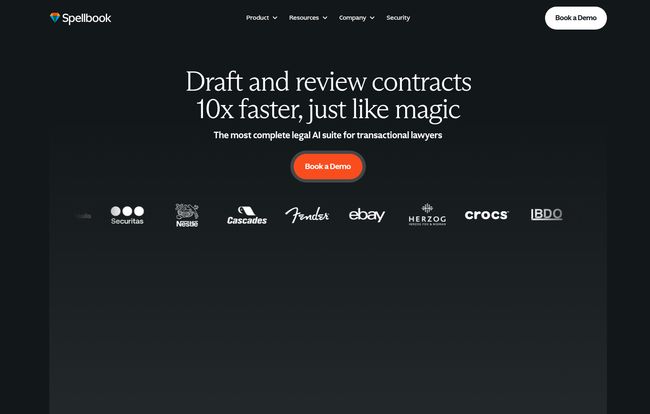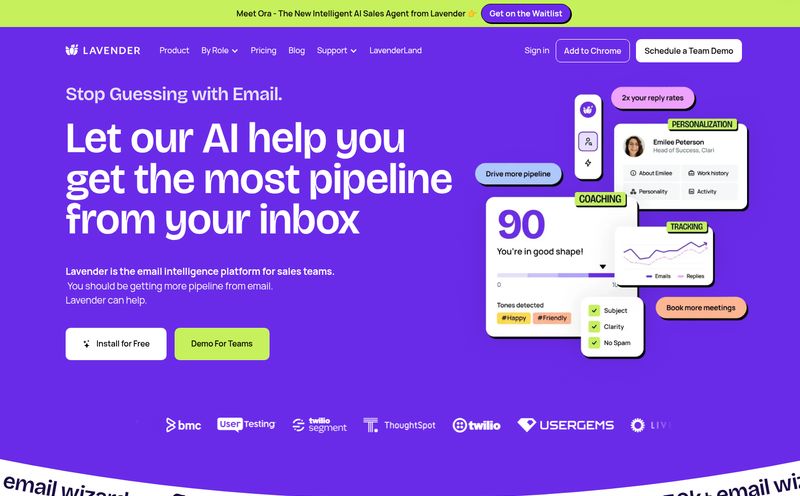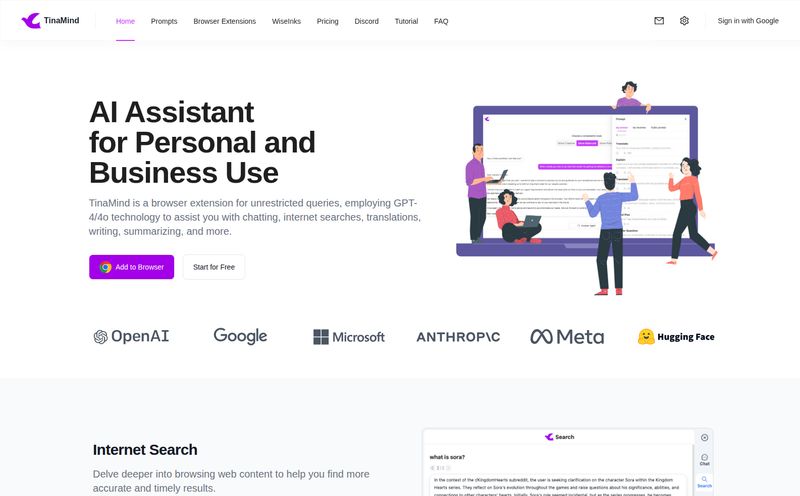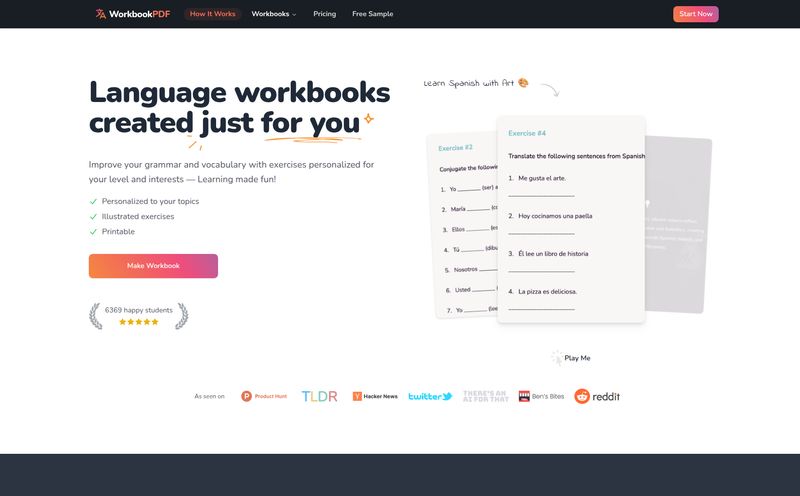If you’ve ever been in the trenches of transactional law, or even just adjacent to it, you know the feeling. The one that hits around 10 PM when you're staring at page 73 of a 110-page Master Service Agreement, and your eyes have officially glazed over. It's the land of 'heretofore,' 'indemnify,' and 'notwithstanding the foregoing'—a special kind of purgatory built from dense, repetitive text. For years, we've been told tech would save us. And for years, most of it has been... underwhelming.
So when I first heard about Spellbook, I was skeptical. Another AI tool promising to be a silver bullet? Sure. But this one felt a little different. It wasn’t trying to replace the lawyer. Instead, it positioned itself as a co-pilot, an intelligent assistant that lives right inside Microsoft Word. It claims to help draft and review contracts 10x faster. That's a bold claim. As someone who lives and breathes tech efficiency, I had to see for myself if it was just marketing fluff or the real deal.
So, What Exactly is Spellbook?
Imagine you’re a lawyer. You open a contract in Microsoft Word, just like you’ve done a thousand times before. But now, there’s a new sidebar. A smart one. That’s Spellbook. It’s a legal AI tool that integrates directly into your existing workflow, which is frankly, genius. There's no new, clunky platform to learn. It’s powered by some of the most advanced models out there, including OpenAI's GPT-4o, and it’s been trained specifically on legal language.
Think of it less as a robot writing for you and more as a hyper-intelligent paralegal who has instantly read and understood millions of contracts. It’s there to suggest better phrasing, spot hidden risks you might miss on your fourth coffee of the day, and check your work against current market standards. It’s designed to handle the grunt work, freeing up your brainpower for the high-level strategy that clients actually pay for.

Visit Spellbook
The Features That Genuinely Caught My Eye
A lot of software tools throw a kitchen sink of features at you. Most are useless. I was pleasantly surprised to see that Spellbook’s features feel purposeful and directly address the pain points of contract work.
Drafting and Reviewing at a Ridiculous Speed
This is the headline feature. Spellbook claims to accelerate the entire process, from drafting a new clause to a full-scale review. You can ask it to generate a standard non-disclosure clause, and it will. But you can also ask it to review the opposing counsel’s redlines and suggest counter-arguments. This transforms a multi-hour task into something you can potentially tackle in minutes. The company says this can help lawyers bill an extra hour a day—and that’s a metric that makes any partner’s ears perk up.
Your AI-Powered Risk Detector
This feature, which they call Risk Redlining, is fascinating. We all have blind spots, especially when we're tired or overworked. Spellbook actively scans documents for aggressive, missing, or unusual clauses that could introduce risk. It’s like having a perpetually vigilant senior associate looking over your shoulder, pointing out things like, “Hey, this indemnity clause is way too broad,” or “There’s no limitation of liability here, you might want to add one.” For in-house teams trying to manage a flood of third-party paper, this is an absolute game-changer.
Benchmarking Your Contracts Against the Market
Ever wonder if the terms you're agreeing to are standard? Or if you're getting a good deal? Spellbook's industry benchmarking feature is the answer. It compares your contract's language against a massive database of similar public agreements to tell you what’s normal. This is incredibly powerful during negotiations. Instead of saying, “This feels off,” you can say, “This clause is an outlier compared to 95% of similar deals in our industry.” That shifts the entire dynamic of the conversation.
The Big Question: Is My Data Safe?
Okay, let's address the elephant in every legal-tech-themed room: confidentiality. No lawyer in their right mind would upload a sensitive M&A agreement to a random AI. Spellbook seems to get this, and they’ve been very public about their security posture. They are SOC 2 Type II compliant, which is a rigorous, third-party audited security standard. You can find out more about what that means over at the AICPA website.
Even more importantly, they offer Zero Data Retention agreements. This means they don't store your confidential contract data or use it to train their models. Your data is processed to give you an answer, and then it's gone. For a profession built on privilege and confidentiality, this is the absolute minimum table stakes, and I'm glad to see them taking it seriously.
Who Is This Actually Built For?
Spellbook is pretty clear about its audience. It's designed for transactional lawyers, but they've split their offering to cater to two distinct groups:
- Law Firms: From solo practitioners to Big Law, the value proposition here is about efficiency and profitability. By cutting down non-billable time and speeding up billable tasks, lawyers can either take on more work or—dare I say it—go home at a reasonable hour. It helps them deliver more value to clients, faster.
- In-House Teams: For corporate legal departments, the game is different. It’s about managing overwhelming workloads and reducing dependency on expensive outside counsel. Spellbook becomes a force multiplier, allowing a small team to perform like a much larger one. They can handle more contract reviews internally, saving the company a small fortune.
Let's Talk About the Price Tag
And now for the part everyone skips to. How much does it cost? Well, if you're looking for a simple pricing table, you won't find one. Spellbook uses a custom pricing model, which is common for specialized B2B software.
The cost depends on the size of your team and the specific features you need. They have different tiers within their Law Firm and In-House suites, with names like 'Solo,' 'Associate,' and 'Partner' for firms, and 'Attendee,' 'Counsel,' and 'General Counsel' for in-house. This structure suggests the pricing scales with the level of functionality and support required. My advice? Don’t let the lack of a public price scare you. The real question is about ROI. If the tool genuinely saves you dozens of hours a month or helps you avoid one badly negotiated contract, it likely pays for itself very quickly.
The best way to figure it out is to use their 7-day free trial. It requires a work email, which makes sense since they're targeting professionals, but it’s a no-commitment way to see if it fits your practice.
My Honest Take: The Good, The Bad, and The Maybe
So, after digging in, what’s my verdict? I’m genuinely impressed. The MS Word integration is the killer feature for me. It shows a deep understanding of how lawyers actually work. You dont have to change your habits, you just get a superpower within them.
However, it isn't perfect, nothing is. Right now, its focus is squarely on transactional law. If you’re a litigator or work in a different practice area, this might not be for you… yet. There’s also going to be a learning curve. It's intuitive, but getting the most out of it will require changing some old habits and learning to trust your new AI co-pilot. And the work-email-only trial might be a minor hurdle for some people just wanting to poke around.
The Final Word: Should You Try Spellbook?
If you are a transactional lawyer, an in-house counsel, or a paralegal buried in contracts, my answer is an enthusiastic yes. At the very least, sign up for the free trial. The potential upside in time savings and risk reduction is just too high to ignore.
Is Spellbook the magic wand that the name implies? Not quite. It won't do your job for you. But it is an incredibly powerful tool that can augment your skills, eliminate the most tedious parts of your work, and maybe, just maybe, help you reclaim some of your time. And in the legal world, time is the one thing you can never get back.
Frequently Asked Questions
- What is Spellbook?
- Spellbook is an AI-powered legal software tool that integrates directly into Microsoft Word. It uses advanced language models like GPT-4o to help transactional lawyers draft, review, and negotiate contracts faster and more accurately.
- How does Spellbook integrate with my workflow?
- It works as a plug-in for Microsoft Word. You don't need to switch to a different application. You continue to work on your documents as usual, but with the added functionality of Spellbook's AI features in a sidebar.
- Is my confidential client data safe with Spellbook?
- Spellbook emphasizes security. It is SOC 2 Type II compliant and operates on a Zero Data Retention policy, meaning it does not store your contract information or use it for AI training. Your data is processed temporarily to provide assistance and then discarded.
- How much does Spellbook cost?
- Spellbook does not have public pricing. It offers custom plans tailored to the size and needs of law firms and in-house legal teams. You would need to contact their sales team for a quote or start a free trial to evaluate its value for your specific use case.
- Is there a free trial for Spellbook?
- Yes, Spellbook offers a 7-day free trial. You'll need to sign up with a professional work email address to access it.
- What kind of lawyers is Spellbook best for?
- The tool is primarily designed for transactional lawyers and legal professionals who work extensively with contracts, such as corporate lawyers, in-house counsel, and paralegals in M&A, commercial contracts, real estate, and finance.
Reference and Sources
- The official Spellbook Website: https://www.spellbook.legal/
- Information on SOC 2 Compliance from AICPA: https://www.aicpa.org/topic/audit-assurance/audit-and-assurance-services/soc-2
- OpenAI's page on its models, including GPT-4o: https://openai.com/index/hello-gpt-4o/



